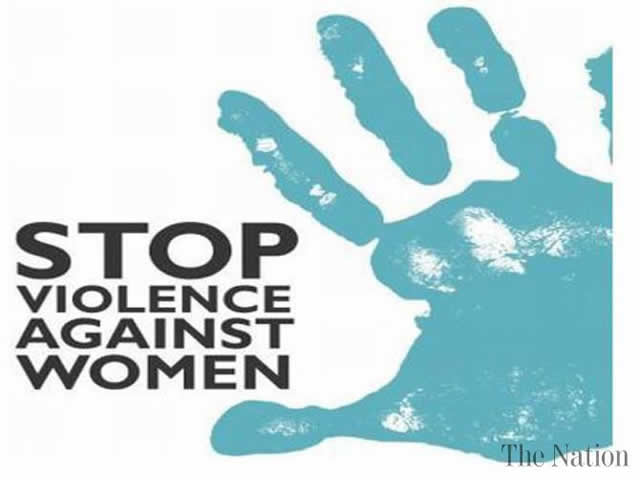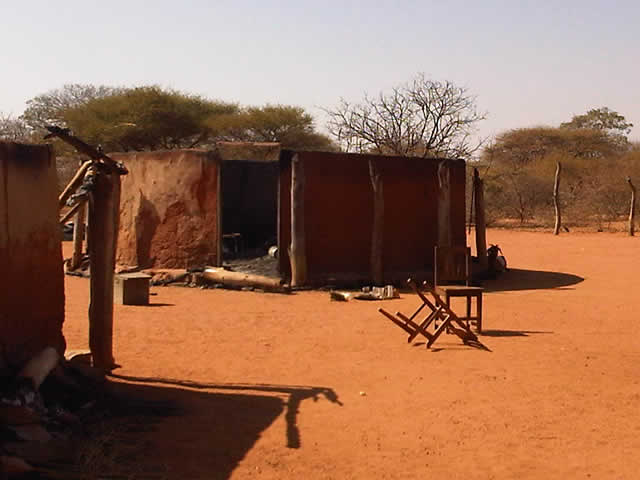Rise in GBV cases calls for prompt intervention

BULAWAYO continues to be haunted by escalating figures of gender-based violence (GBV) despite a raft of measures put in place to fight the scourge.
As the commemoration of 16 Days of Activism Against Gender-Based Violence continues, it has emerged that the majority of people are not aware of statutory instruments in respect of the domestic violence. The days of activism start every year on 25 November ending on 10 December.
The prevalence of ignorance is despite the fact that Zimbabwe ratified the Sadc Protocol on Gender and Development which targets to reduce the scourge by 50 percent by 2015 and the existence of many domestic laws on the same.
Squatters at Richmond dumpsite popularly known as Ngozi Mine said some of them lacked information. Richmond dumpsite is a small, closely-knit community where, on the whole, no one is in control and where poverty inevitably is the order of life. Because of this, abuses are common and go unpunished.
“I have been staying at Ngozi Mine for the past seven years. As you know this is a dump site and poverty is prevalent and levels of unemployment are alarming,” said Sehliselo Ncube.
She said most of the abuses were perpetrated by community leaders who ironically are supposed to be role models.
“The most painful thing is that most of these abuses are perpetrated by community leaders making it difficult to fight the war. My husband has been abusive but I have learnt to accept it as part of marriage life,” said Ncube.
In February 2007, the Government enacted the Domestic Violence Act which is aimed at providing protection and widening the scope of relief available to domestic violence victims. This has not done much to curtail cases of domestic violence.
In total, Zimbabwe has 17 pieces of legislation that seek to promote gender equality and protect women’s rights, in the long run reducing cases of GBV.
Sithembile Tshuma, like Ncube, said she will never report her abusive husband. She thinks he would “punish” her for reporting.
“In this community we have a disciplinary committee where we can report cases of violence. However, I will never report because my husband will punish me if he finds out that I have reported him. I would rather seek consolation from my neighbours than risking my life,” Tshuma said.
She confessed that most of the violence that took place in her marriage was a result of poverty. “We often fight because my husband is not playing his role of being the bread winner and he wants to use the little money I get for drinking,” said Tshuma.
Findings by the Zimbabwe Demographic and Health Survey (ZDHS) indicate that 37 percent of women who experienced physical or sexual violence have sought help. Five to eight percent turn to family, 36 percent turn to in-laws and 13 percent turn to neighbours and friends for assistance.
The Government must act now to reduce the incidence of GBV to guarantee women’s human rights. This requires a holistic approach that includes constitutional and legal measures, social, political and economic empowerment, political leadership, and a fundamental change of attitudes from the bedroom to the boardroom.
At a recent workshop on the 16 days of Activism Against Gender-Based Violence organised by Gender Links, Bulawayo Mayor, Councillor Martin Moyo said women are often suppressed. Council, he said, has decided to mainstream women in economic development.
“The City of Bulawayo has prioritised women to be the major beneficiaries of vending market bays allocated by council. It is our hope as council that when we empower women, we also empower society,” said Clr Moyo.
He said he is concerned about the poor living conditions at Ngozi Mine and pledged that council would “do something” to assist the elderly and the children who cannot help themselves.
Another resident from Ngozi Mine who declined to be named said:
“We cannot start any developmental projects as long as we are living in this area. We are not permanent in this area and as such we can be evicted at any time. As it is we are struggling to get the basic needs, we rely on picking food from the dumpsite,” she said.
About 26 percent of women interviewed during the survey experienced some form of violence, psychological, emotional, economic, physical or sexual, often perpetrated by an intimate partner.
Thirteen percent of men in the country admitted to perpetrating some form of violence against their intimate partners during the 2011-12 period. Sixty-nine percent of women experienced while 41 percent of men admitted to perpetrating intimate partner violence in their lifetime.
According to the Childline public relations officer, Patience Chiyangwa, boys are also abused but it was more difficult to detect because of the way they have been brought up.
“Boys are traditionally brought up not to portray weakness. There is the ‘big boys don’t cry’ syndrome and therefore will not easily speak out especially on abuse as it diminishes their manhood. On the contrary, girls will open up more easily although both boys and girls might be compromised to speak due to adverse effects of abuse and other people call Childline on their behalf.”
She said they had received about 4,000 reports on child abuse from January to date.
“Forty percent of calls were received from boys and 60 percent received from girls. From January to September 2013, two 2,012 cases on sexual abuse were received,” she said.
“Communities, where possible, must open dialogue and discussion around protection and the safety of our children. Starting at family level is best looking at the trend of where abuse is taking place. As the saying goes, “charity begins at home” communities ought to create child-friendly homes for the sake of keeping our children safe from abuse.”









Comments